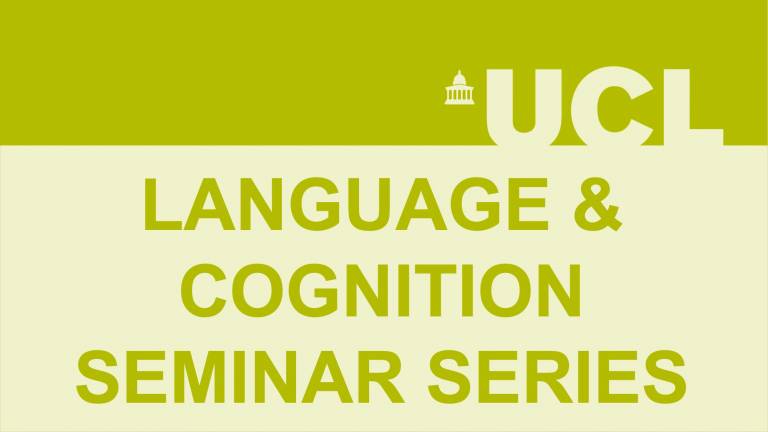Language & Cognition seminar - Dr Marina Cantarutti
19 May 2021, 1:00 pm–2:00 pm

Wednesday 19 May, 1-2pm UK time. Talk held online. "Phonetics as a resource for solving participant problems in interaction: Evidence from collaborative productions in English"
This event is free.
Event Information
Open to
- All
Cost
- Free
Organiser
-
Disa Witkowska – Language & Cognition
Phonetics as a resource for solving participant problems in interaction: Evidence from collaborative productions in English
This talk will present a number of reflections about the role of phonetics in everyday interaction. Talk in interaction evolves temporally and incrementally, and participants manage a number of problems as speakers “get things done” through talk; problems around turn-taking and participation, the organisation of sequences of action and the contextualisation of affective and evaluative stances towards what they are saying and each other. These orders of organisation are “problems” that participants jointly manage by deploying a number of semiotic resources -including phonetic detail- that concurrently and in complex ways orient to these moment-by-moment interactional issues that need to be addressed. Moreover, the phonetic design of turns is seen to not only to orient to the interactional needs and contingencies of the current speaker, but also to the design features of prior turns by other participants.
By reviewing the findings of research conducted from the perspectives of conversation analysis (Sacks, Schegloff, & Jefferson, 1974) and interactional linguistics (Couper-Kuhlen & Selting, 2001), this talk will present a number of reflections around the role of phonetics in everyday interaction (Couper-Kuhlen & Selting, 1996; Local & Walker, 2005; Ogden, 2021). Using as evidence prior research on collaborative productions (anticipatory completions, Other-continuations, choral productions, and co-animation, see e.g. Lerner 1996, 2004; Szczepek-Reed, 2006, 2010; Cantarutti, 2019, 2020), a proposal will be made for the study of phonetic phenomena within a multimodal and interactional view of language. It will be shown how viewing phonetics in and as (inter)action allows us to see phonetics as a complex resource made up of different parameters acting in complementary or redundant ways with other semiotic systems to solve everyday interactional problems.
About the Speaker
Dr Marina Cantarutti
Research associate at Faculty of Wellbeing, Education & Language Studies
More about Dr Marina Cantarutti Close
Close

